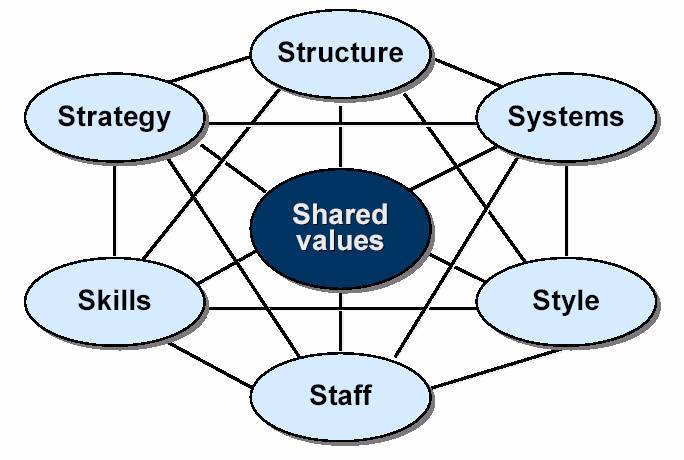 Here are some insights about personal change management presented by Dr. Wayne Dyer, a world-famous motivational expert, in his various books and talks. These can help us to change both at the personal level and as managers/professionals working in organizations. Some of of these concepts are known to have been originally articulated in management theory, in philosophy and in psychology…
Here are some insights about personal change management presented by Dr. Wayne Dyer, a world-famous motivational expert, in his various books and talks. These can help us to change both at the personal level and as managers/professionals working in organizations. Some of of these concepts are known to have been originally articulated in management theory, in philosophy and in psychology…
Category: Strategy and Planning (Page 3 of 3)
 There are lot’s of things to take care of when introducing change in an organization – and there are lot’s of myths and hype as well about what works and what doesn’t. Change management is as complex as human beings are – so there aren’t any easy answers or recipes for success. But here’s a list of 6 key things to keep in mind as you think about creating a toolkit for change in your workplace…
There are lot’s of things to take care of when introducing change in an organization – and there are lot’s of myths and hype as well about what works and what doesn’t. Change management is as complex as human beings are – so there aren’t any easy answers or recipes for success. But here’s a list of 6 key things to keep in mind as you think about creating a toolkit for change in your workplace…
 By Asad Zaidi
By Asad Zaidi
Jack Welch, the great corporate giant who turned GE into a huge success, had a way of simplifying matters – he said that all things that are important in a business, whether it is a nuclear power plant or a corner grocery store, are the same : people, quality, service and cash flow. He mentioned a number of his strategies and insights for managerial and organizational success in his books and lectures. The following 8 (the management octagon if you like) are our favorites…
 Lot’s of people these days are familiar with SMART goals – S for specific, M for Measurable, A for Achievable, R for Realistic and T for Timebound. In fact, entire training sessions lasting for days revolve around how to make SMART objectives. Gee whiz! Now that we are all familiar with the acronym, it would seem we can all go ahead and set goals more effectively. But the reality as we have all experienced is very different. Many goals we set are never realized (like the New Year fantasies on personal change) because we focus too much on the outcome, not the process . Ninety times out of a hundred, this is a setup for failure…
Lot’s of people these days are familiar with SMART goals – S for specific, M for Measurable, A for Achievable, R for Realistic and T for Timebound. In fact, entire training sessions lasting for days revolve around how to make SMART objectives. Gee whiz! Now that we are all familiar with the acronym, it would seem we can all go ahead and set goals more effectively. But the reality as we have all experienced is very different. Many goals we set are never realized (like the New Year fantasies on personal change) because we focus too much on the outcome, not the process . Ninety times out of a hundred, this is a setup for failure…
 If you want to look at a framework for the purpose of change management and organizational development, you may want to study the 7-S framework. This is a model that describes how to organize to effectively organize and manage the various elements of an organization in an integrated manner. Consider this as just an introduction or maybe a reminder to get you on the road to further study and deliberation on the subject of change management
If you want to look at a framework for the purpose of change management and organizational development, you may want to study the 7-S framework. This is a model that describes how to organize to effectively organize and manage the various elements of an organization in an integrated manner. Consider this as just an introduction or maybe a reminder to get you on the road to further study and deliberation on the subject of change management
from a 1998 article by Peter M. Senge of MIT
Know Your Purpose
We can start by inquiring into what we mean by mission anyway. It is very hard to focus on what you cannot define, and my experience is that there can be some very fuzzy thinking about mission, vision, and values. Most organizations today have mission statements, purpose statements, official visions, and little cards with the organization’s values. But precious few of us can say our organization’s mission statement has transformed the enterprise. And there has grown an understandable cynicism around lofty ideals that don’t match the realities of organizational life….

Recent Comments